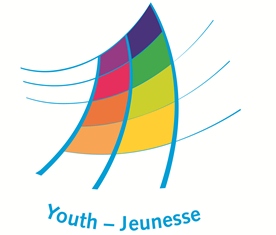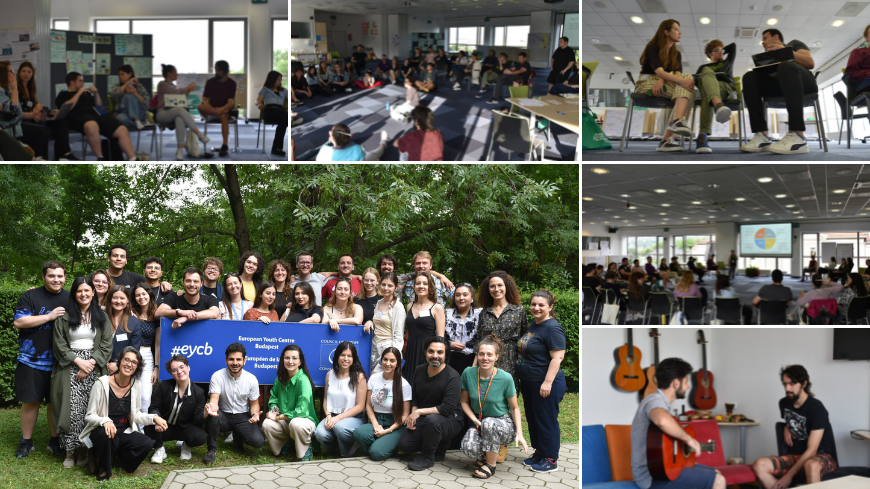TRAINING OF TRAINERS FOR YOUTH IN THE COUNCIL OF EUROPE (TRAYCE) 2023-2024

 RE-INTRODUCING TRAYCE
RE-INTRODUCING TRAYCE
The 2023-2024 edition of TRAYCE is the next step in the tradition of training of trainers organised by the Youth Department. It falls into a category of training courses that build generic non-formal education competences of trainers, over a longer period.
The training will support a group of dedicated young educators in developing and reflecting on their competences, skills and values to get more comfortable and equipped in working with and within the Council of Europe Youth Department. TRAYCE has been designed as a unique long-term training course that aims to increase the capacity of individuals, their youth organisations and support the general programme of activities of the Youth Department.
On a broader scale, TRAYCE should contribute to the development and recognition of non-formal education in Europe, to a renewal and diversification of the pool of young educators that the Youth Department works with, and to strengthen partnerships and connection with youth organisations in Europe.
AIM
TRAYCE supports the implementation of the Council of Europe youth sector strategy 2030 by developing the competences of youth trainers and sustaining the quality of non-formal education and training activities.
Strategic and institutional objectives
- To further promote and apply the Council of Europe’s core values, approaches and priorities in the education and training activities of the youth sector and its partners, in particular through democracy and human rights education, democratic youth participation, intercultural learning and combating discrimination applying inter-sectional approaches
- To support the quality and sustainability of the youth programme of the Council of Europe and its partners, including the renewal of the expertise of the Trainers Pool of the Youth Department
- To update and further develop the professional profile of youth trainers in Europe and the recognition of their role in supporting youth work and youth policy
- To contribute to the recognition, quality development and provision of non-formal education activities in the youth field and the educational work of youth organisations active at the local, national or international levels
- To exchange about and learn from contemporary trends and realities of young people in Europe, youth work and non-formal education and reflect them in needs- and evidence-based training practices
- To enhance the role of the programme of activities of the European Youth Centres in Budapest and Strasbourg and of capacity-building activities of cooperation projects in member states
- To update the approaches, discourse and experiences about training and non-formal education in the broader youth sector across Europe.
Educational objectives
- To develop the competences of thirty youth leaders, trainers, facilitators or multipliers, to act as competent and confident trainers in youth activities at national and European level based on a shared understanding of quality approaches in intercultural non-formal education
- To deepen participants conceptual and practical knowledge of the Council of Europe’s institutional framework, values, policies, programmes and approaches underlying non-formal education with young people
- To guide participants in extending their competences and confidence to design, run and evaluate quality non-formal education and training activities, including in blended-learning formats, through experiential learning and self-directed learning
- To enable the participants to develop and adjust educational interventions to reflect current trends, emerging issues, needs, and communication and learning modes of young people
- To raise self and collective awareness the ethical, professional, social and personal dimensions of working as a youth trainer in non-formal education in contemporary Europe
- To equip participants/trainers with conceptual and educational resources to practice and advocate for the role of non-formal education and youth work in the development of a culture of human rights, democracy and non-violence
- To connect generations of trainers and practitioners of non-formal education and encourage communities of practice, cooperation and networking among actors at various levels of youth policy, non-formal education and youth work.
METHODOLOGY OF THE COURSE
TRAYCE is a long-term training course of hybrid nature. The blended work will include face to face meetings, online learning element, training practices , cooperative learning and individual guidance schemes.
TRAYCE will be based on principles of non-formal education and includes methodological approaches such as:
- experiential learning
- taskbased learning
- individual and cooperative/peer learning
- independent and selfdirected learning
- learning within organisations, and in connection with participants’ local work and their organisation
- competencebased learning
- focus on learning outcomes translation into practical skills.
TRAYCE is a course where full and wide cooperation between the learners, the organisations they represent, local partners, Council of Europe Youth Department and the team of trainers, is essential and the guarantee for the success of the course and its results.
PROFILE OF PARTICIPANTS
The course will bring together young facilitators, educators or trainers who have the motivation and need to develop their competences as trainers in non-formal education. The participants must be able to commit to the full duration of the course and all its features.
Applicants to TRAYCE are expected to:
- be aged 18-30 at the time of applying;
- have experience working as facilitators, trainers or educators in nonformal education activities and possess the motivation and need to improve their trainers’ competences;
- have some relevant experience of European level youth work through education and training activities;
- be active in, and be supported by, a youth organisation, network, pool of trainers, community etc. on local, national and / or international level;
- subscribe to the values and mission of the Council of Europe;
- have the capacity to run a training practice during the course, on themes related to the priorities of the Council of Europe Youth Department;
- be in position to multiply what they learn during the course to the wider youth work field;
- have basic ICT competences and regular access to the Internet during the course;
- be available for the whole course (residential seminars and all other features of the programme);
- reside in one of the countries state parties to the European Cultural Convention;
- be able to work in English.
PARTICIPANTS
- Mikel Aguirre Herreiro / Infinite Opportunities Association
- Zeliha Busra Akdogan / Youth Express Network
- Ralu Baciu / IGLYO
- Flutura Brakaj / Regional Youth Cooperation Office- RYCO
- Nino Butskhrikidze / Imereti Development Center
- Sara Chehade / Youth and Environment Europe
- Lana Chkadua / Women Fund for Development
- Mustafa Andım Çoban / YFU Turkey and Jugendbotschafter e. V.
- Petru Crețu / „MilleniuM” Training and Development Institute
- Rebecca Fisch / ternYpe International Roma Youth Network
- Evie Grouta / Association for Historical Dialogue and Research
- Chiara Gullotta / Amnesty International Italy
- Nare Hovhannisyan / Erasmus Student Network Yerevan
- Georgina Laboda / DIKH HE NA BISTER - Roma Genocide Remembrance Initiativ
- Adam Lambe / National Youth Council of Ireland
- Mila Lukic / Arka Foundation
- Irada Mehdiyeva / Azerbaijan Alumni Association
- Beatriz Melo / Portuguese Red Cross - Braga Branch
- Armine Movsesyan / MIJARC Europe
- Spyros Papadatos / AEGEE, European Students Forum
- Zacharias Piazas / United Societies of Balkans
- Syrine Rekhis / The European Forum for Youth with Lived - Migration Experience
- Gianluca Rossino / DYPALL NETWORK
- Martin Siemen / Rural Youth Europe
- Kristiana Stoyanova / Erasmus Student Network
- Katarzyna Urbanczyk / GFPS-Polska Stowarzyszenie Naukowo - Kulturalne Europie Środkowej i Wschodniej
- Carmen Valerius / Finnish Roma Association
EDUCATIONAL TEAM
 Educational team
Educational team
- Ana Afonso, trainer/consultant
- Cihan Kilic, trainer/consultant
- Zara Lavchyan, trainer/consultant
- Kalle Ristikartano, trainer/consultant
- Ida Kreutzman, Educational Advisor, Youth Department
Residential seminar I
4-11 June 2023, European Youth Centre Budapest
Residential Seminar II
11-17 September 2024, European Youth Centre Strasbourg





